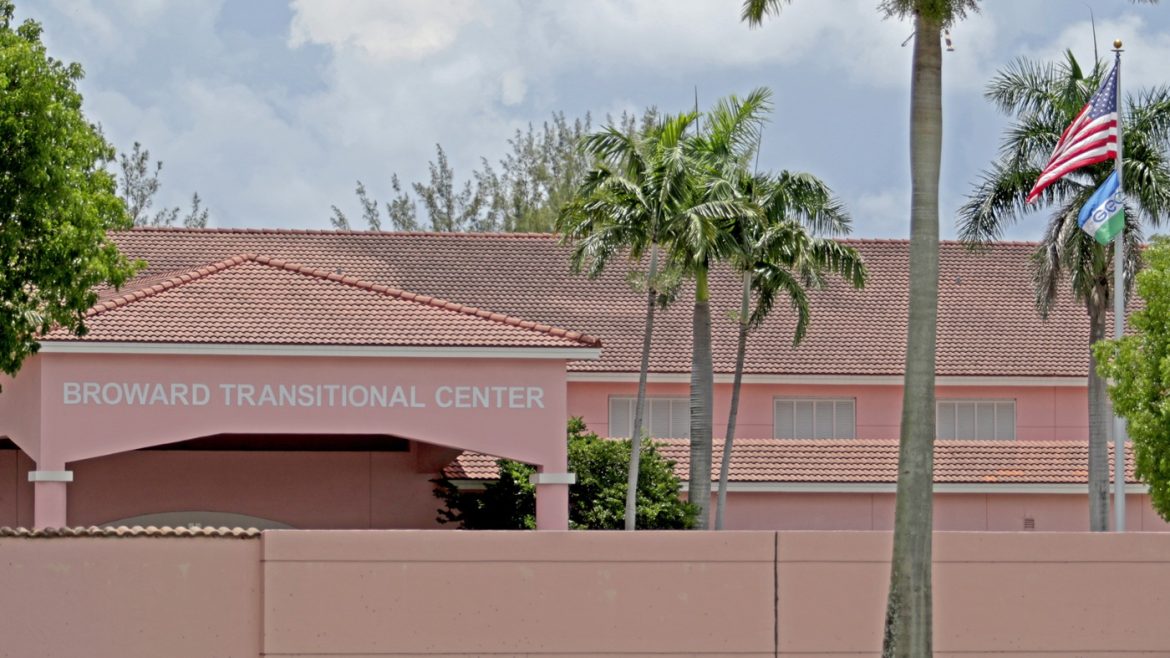The Tragic Death of Marie Ange Blaise in ICE Detention
The recent passing of Marie Ange Blaise, a 44-year-old Haitian woman, while in the custody of U.S. Immigration and Customs Enforcement (ICE) at the Broward Transitional Center in Pompano Beach, Florida, has sparked outrage and demands for transparency. Blaise’s death, which occurred on a Friday night after over two months in detention, has raised serious questions about the conditions and medical care provided within ICE facilities. This report delves into the circumstances surrounding her death, the subsequent investigations, and the broader implications for immigrant detention policies.
The Circumstances Surrounding Marie Ange Blaise’s Death
Medical Neglect and Delayed Response
Marie Ange Blaise’s death has been shrouded in controversy, particularly regarding the medical care she received while in detention. Reports indicate that Blaise had been complaining of chest pains for hours before her death. Despite her repeated pleas for medical attention, she was allegedly told to “lie down” and wait. This delay in medical response has raised significant concerns about the adequacy and timeliness of healthcare services provided to detainees.
Detention Conditions and Allegations of Inhumane Treatment
The conditions within ICE detention centers have long been a subject of scrutiny. Blaise was among those held in what have been described as “allegedly inhumane conditions.” Detainees often face overcrowded facilities, inadequate hygiene, and insufficient medical care. These conditions can exacerbate existing health issues and lead to severe health crises, as appears to have been the case with Blaise.
Timeline of Events
Blaise had been in ICE custody for over two months before her death. Her prolonged detention and the subsequent medical neglect highlight the systemic issues within the immigration detention system. The timeline of events leading up to her death is crucial in understanding the failures that led to this tragic outcome. From the moment she was detained to her final hours, the lack of timely and appropriate medical intervention is a glaring issue that demands scrutiny.
Investigations and Calls for Transparency
ICE’s Internal Investigation
ICE has initiated an investigation into the cause of Blaise’s death. However, the agency’s track record in conducting transparent and thorough investigations has been called into question. Critics argue that ICE’s internal investigations often lack independence and may not fully address the systemic issues within the detention system.
Lawmakers Demand Answers
Lawmakers, including local congresswoman Sheila Cherfilus-McCormick, have demanded a full investigation into Blaise’s death. They have called for transparency and accountability, urging ICE to provide detailed information about the circumstances leading to her death. This push for transparency is essential in holding the agency accountable and ensuring that similar tragedies do not occur in the future.
Broader Implications for Immigrant Detention Policies
Systemic Issues in ICE Detention Centers
The death of Marie Ange Blaise underscores the systemic issues plaguing ICE detention centers. Overcrowding, inadequate medical care, and inhumane conditions are not isolated incidents but are part of a broader pattern of neglect and abuse. Addressing these issues requires a comprehensive overhaul of the detention system, including increased oversight, improved medical care, and better living conditions for detainees.
The Need for Reform
The incident highlights the urgent need for reform within the immigration detention system. Policymakers must prioritize the well-being and human rights of detainees, ensuring that they receive adequate medical care and are treated with dignity and respect. This includes implementing stricter regulations, increasing funding for medical services, and ensuring that detention centers are held accountable for their actions.
Public and Political Pressure
The outcry over Blaise’s death has galvanized public and political pressure for change. Advocacy groups and lawmakers are pushing for reforms that prioritize the health and safety of detainees. This collective pressure is crucial in driving policy changes and ensuring that the voices of immigrants and their families are heard.
Conclusion: A Call for Justice and Reform
The tragic death of Marie Ange Blaise serves as a stark reminder of the urgent need for reform within the immigration detention system. Her story highlights the systemic issues that continue to plague ICE detention centers, including inadequate medical care, inhumane conditions, and a lack of transparency. As lawmakers and advocates demand answers and justice, it is imperative that we use this moment to push for meaningful change. The lives of detainees depend on it. By advocating for better conditions, increased oversight, and accountability, we can work towards a more just and humane immigration system. The memory of Marie Ange Blaise and others like her should not be in vain; their stories must drive us to create a better future for all detainees.


